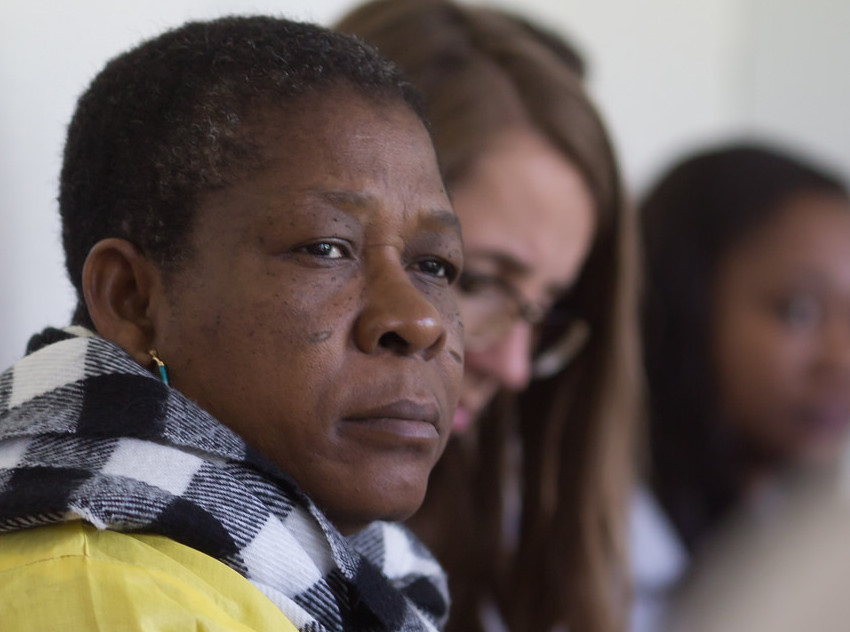
Human rights defender's story: Bose Agbonmerele Iro-Nsi from Nigeria
Bose Agbonmerele Iro-Nsi, a dedicated women's rights advocate in Nigeria, fights against domestic violence and harmful cultural practices through education and legal awareness, facing cultural resistance and threats in her mission.
Bose Agbonmerele is the founder and team leader of the Women’s Rights and Health Project (WRAHP) in Nigeria. WRAHP is an NGO that works to promote community and women’s rights, reproductive health and children’s development.
Defending women rights and advocacy strategy
As an advocate, Bose focuses on access to justice for women suffering domestic violence, child abuse, and cultural practises that are detrimental to health and contravene fundamental rights of both women and children – an example includes female genital mutilation. Bose seeks to create awareness of existing laws that address domestic violence, and educates vulnerable communities on their rights contained in those laws.
‘WRAHP previously received between 2 and 4 cases of women who had suffered domestic violence each month. Since engaging with the media and speaking publically on the common violation of women and children’s rights, WRAHP now receives about five cases and large numbers of calls every day from women in distress.’
Challenges and risks
Cultural norms and practise endorse a system of patriarchy in Nigeria. This means that raising children in an environment rife with domestic violence perpetuates a vicious cycle. Bose highlights the importance of focusing on building awareness within the family, as well within religious institutions and churches – which can then create further awareness about Gender based violence.
‘Gender based violence constitutes a further challenge. Domestic violence is often viewed as a personal domestic dispute, which results in law enforcement agencies turning a blind eye. This further drives a system of impunity among the community. Moreover, the stigma associated with calling the police on your own family member and the lack of independence of women puts them at risk of destitution.’
Bose also identified gaps and loopholes in Nigerian laws and policies that need strengthening. She identified 2 major limitations in the Violence Against Persons Prohibition Act, which addresses, among other violations, female genital mutilation and acid attacks. This law is restricted to the capital of Nigeria and often imposes fines for offences that should result in more significant penalties.
Some community elders have claimed that WRAHP’s work is intrusive to their culture and traditions. As a result Bose has suffered intimidation. However, she has maintained a holistic approach to raising awareness, including amongst men who might oppose her views.
Engagement with the international community
Bose explained that her experience in Geneva at ISHR Human Rights Defender Advocacy Programme (HRDAP) has broadened her knowledge of UN mechanisms and her perspective about civil society engagement. Going forward Bose intends to incorporate the international networks she has made in Geneva into her existing regional networks. She also intends to engage with Special Procedures mandate holders to increase awareness about the human rights situation in Nigeria.
‘One of the positive aspects of my experience at HRDAP was the opportunity to share experiences with other participants. I learnt about the diverse issues which other human rights advocates face. The organisation of the programme and activities have been great.’
The change Bose would like to see
Through her brief experience at the UN, Bose has noticed the use of the phrase “intimate partner violence”. She believes the use of this phrase in addressing domestic violence overlooks other serious aspects of domestic violence. This term focuses only on partners, disregarding child abuse, parental abuse of children, and violence at the hands of extended family. Bose would like to see a more robust policy addressing all aspects of domestic violence.
Goals and bjectives
Bose believes that it is crucial to understand successful strategies used by defenders working on other issues and defenders in different regions. Bose is grateful to have had the opportunity to interact with defenders working on different thematic groups, including LGBTI and business Human Rights issues. She believes that all activists share the same common goal and working together and learning from each other will help to improve advocacy success rates. Bose would like to continue engaging foreign missions to bolster her national advocacy.
In the long run, Bose would like to see herself as a regional and international advocate sharing her experiences on an international platform. She was impressed with the participation of young people in HRDAP and says she would like to encourage other young people to participate in advocacy training sessions in Nigeria.
‘I just can’t recommend HRDAP enough to other people.’
